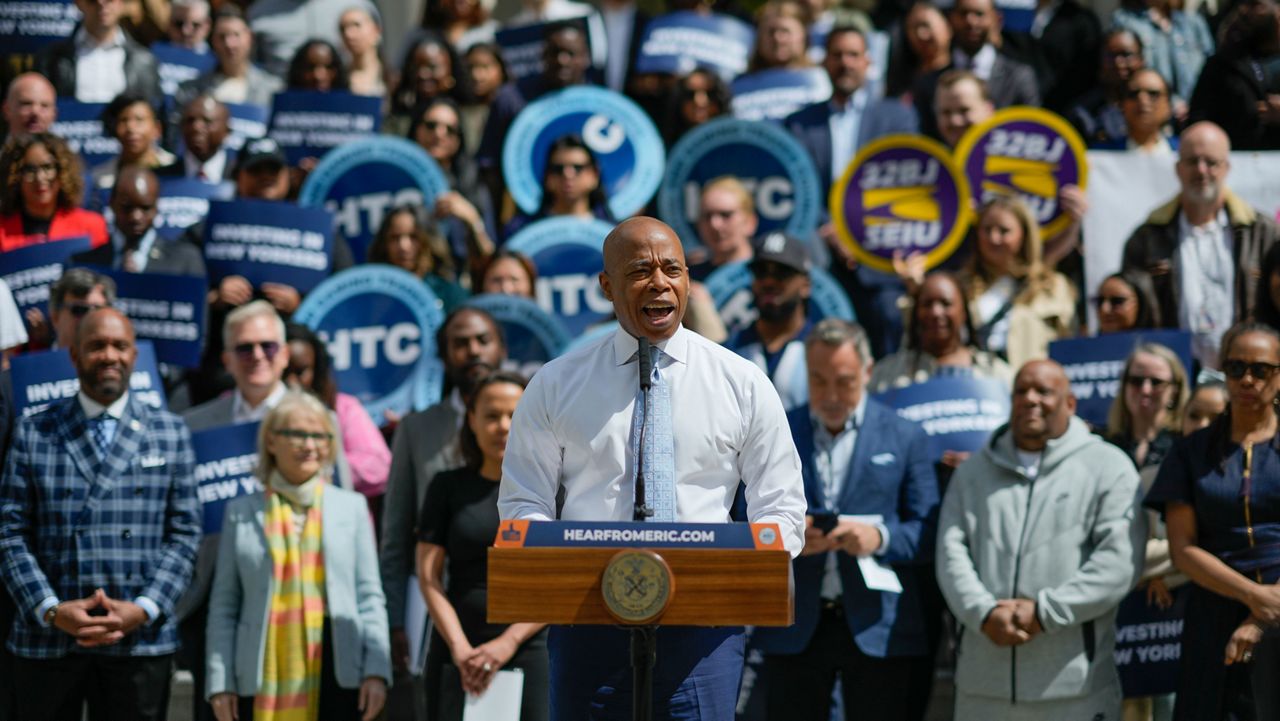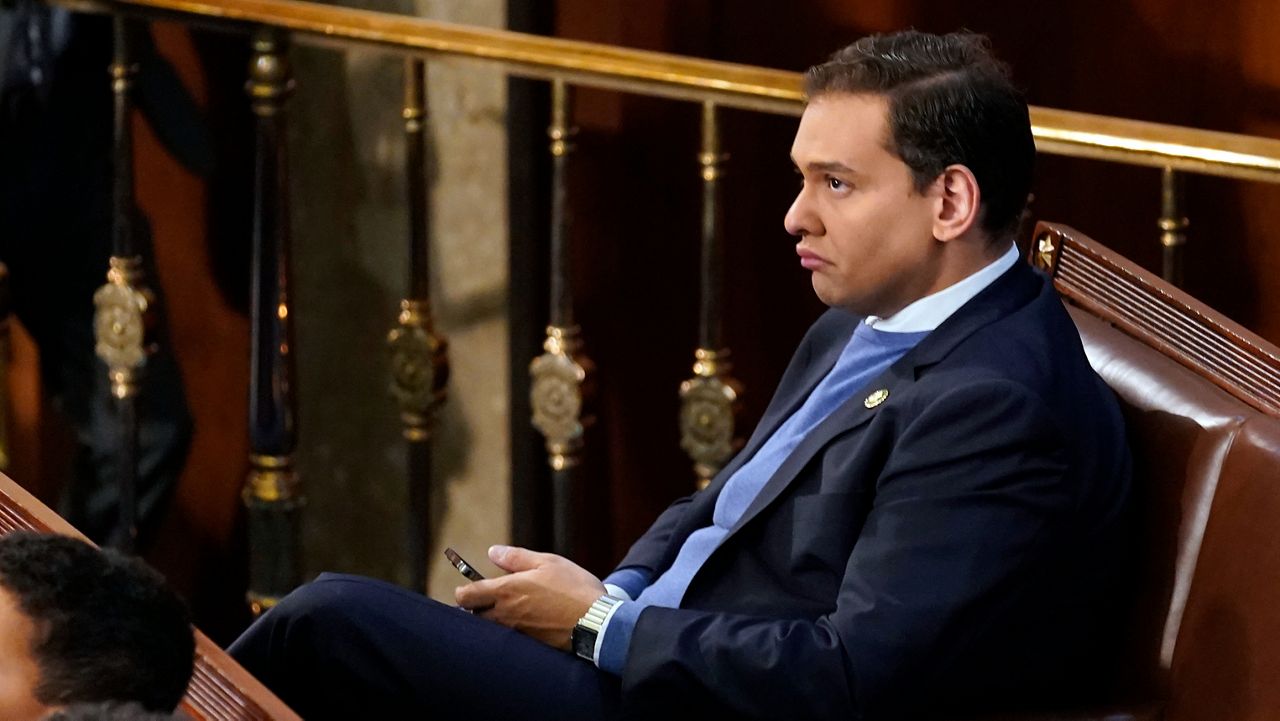The city announced a plan Monday for critical repairs for thousands of public housing apartments that includes converting the units into Section 8 housing and bringing in private management to help with a large backlog of repairs.
HOW DOES RAD MOVE HOUSING UNITS CLOSER TO PRIVATIZATION?
The city said it is trying to convert 62,000 NYCHA apartments into Section 8 housing by using a federal program, Rental Assistance Demonstration (RAD), which allows non-profits or private developers to take over the maintenance and operation of a building.
It is not total privatization because NYCHA would retain ownership of the land, but these kinds of deals are normally done for long-term leases.
The city has used the program in the past, but only a small number of NYCHA units have been converted using RAD.
WHAT DEVELOPMENTS WOULD BE CONVERTED?
City officials said repairs would include new kitchens and bathrooms, replacing windows, elevators, boilers, and roofs, and improving common areas.
The city is proposing that these 21 NYCHA developments in Manhattan and Brooklyn be converted into Section 8 housing:
Manhattan:
• 335 East 111th Street
• Manhattanville Rehab (Group 2)
• Manhattanville Rehab (Group 3)
• Park Avenue-East 122nd, 123rd Streets
• Public School 139 (Conversion)
• Samuel (MHOP) I
• Samuel (MHOP) II
• Samuel (MHOP) III
• Washington Heights Rehab (Groups 1&2)
• Washington Heights Rehab Phase III
• Washington Heights Rehab Phase IV (C)
• Washington Heights Rehab Phase IV (D)
• Fort Washington Avenue Rehab
• Grampion
Brooklyn:
• Armstrong I
• Armstrong II
• 572 Warren Street
• Berry Street-South 9th Street
• Marcy Avenue-Greene Avenue Site A
• Marcy Avenue-Greene Avenue Site B
• Weeksville Gardens
According to the city, the price tag would be nearly $13 billion, but Mayor Bill de Blasio said in a press conference that the city still needs to finalize the list of units to be converted in conjunction with the U.S. Department of Housing and Urban Development (HUD).
The city said the repairs would be completed on a rolling basis by 2028.
A PREVIOUS $2 BILLION AGREEMENT TO REPAIR NYCHA UNITS
The repairs announcement came less than a week after a federal judge rejected a $2 billion settlement agreement between the U.S. attorney's office and the city's public housing authority to repair NYCHA units. The judge said the order, which also would have appointed a federal monitor to oversee some much-needed repairs, would not have gone nearly far enough to protect the more than 400,000 New Yorkers who live in public housing.
It is estimated that $32 billion is needed to fix the problems plaguing the city's public housing system.
The announcement also came less than 24 hours after the city health department released data that show NYCHA has a high rate of challenging orders to fix lead paint problems. Statistics the department released Sunday evening show that the housing authority has challenged more than 95 percent of orders from the health department since 2010.
Earlier this year, statistics from the city showed that more than 1,300 children living in public housing had been poisoned by lead paint since 2012.
When asked on Monday about the dilapidated state of some NYCHA units, the mayor, as he has done in the past, defended the city's response. He argued NYCHA's crisis is the product of his predecessor, as well as federal and state disinvestment.
"I have to take responsibility, we all have to take responsibility for the administration, for what happened on our watch," de Blasio said. "And we are pained that some of what is happening, we didn't know. Because we would have fixed it."
The mayor said several top NYCHA officials months ago ordered the housing authority to stop contesting health department instructions orders to fix lead paint problems. "Now NYCHA just remediates. Period," de Blasio said.
The de Blasio Administration is expected to announce a larger plan to reform NYCHA by the end of the year.
CONCERNS NYCHA UNITS WILL BE PRIVATIZED
The city has, for months, been accelerating the use of the private sector to repair thousands of NYCHA units, and previously announced plans to lease other NYCHA land for controlled private development.
The RAD program allows private companies to collect rent, which remains the same percentage of tenants' salaries. But private companies are seen as better at sussing out hidden accounts that could change the price.
The firms also have control over their labor force, while NYCHA employees are unionized.
"Eventually this can lead to public housing going away and the people who need it the most will suffer," Gregory Floyd, the president of the Teamsters Local 237 union, warned in June.
NYCHA has denied it would sell its buildings or land through RAD.
It's uncertain what will happen with the case now, whether the authority would go into receivership, which would be, in effect, a takeover of the authority — something the mayor clearly opposes:
"It will take the decision-making power someplace else and we don't know what that will lead to," de Blasio said.






)

 CGPKG Anniversary M15 Fatal Subway Surf CG)
